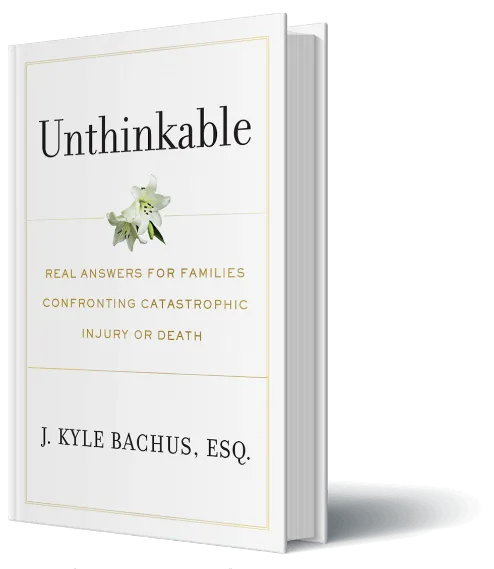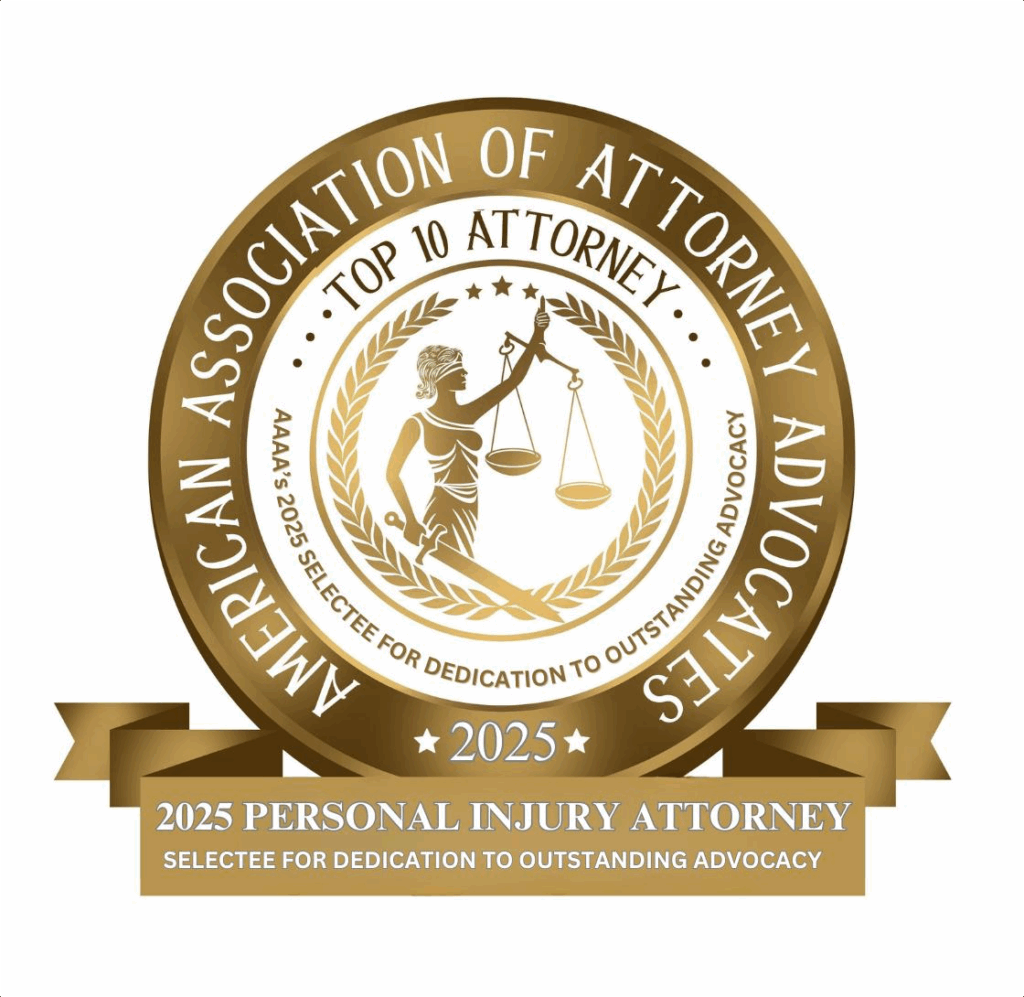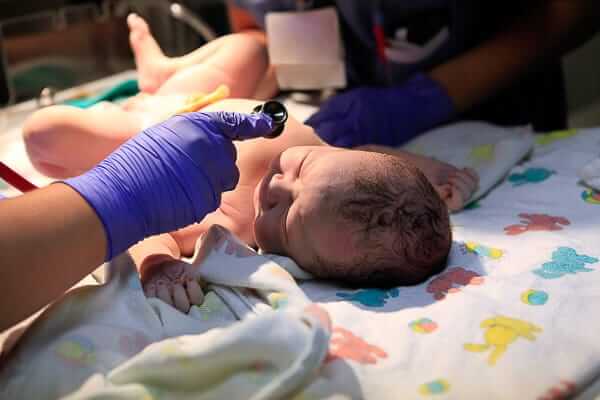How To Prove Negligence For A Construction Accident
Proving construction negligence is a critical part of receiving compensation for a construction accident. Of course, the crucial consideration is how to go about proving that negligence occurred. Our Denver personal injury attorneys explain how to prove negligence if you were injured in a construction accident.
Personal Injury Lawyers » Practice Areas » Colorado Personal Injury Lawyers » How To Prove Negligence For A Construction Accident
- How Do You Prove Construction Negligence?
- Steps To Prove Negligence Caused Your Construction Accident
- What Are the Causes of Construction Negligence?
- Proving Construction Negligence Based on Professional Standards
- Negligence and Other Causes of Action for Construction Injuries
- Construction Defect Action Reform Act and Construction Accident Cases
- Attorneys for Proving Construction Negligence
- Related Personal Injury Resources
- #1 Amazon Best Seller in the Legal Industry
- You Deserve Fair Compensation
How Do You Prove Construction Negligence?
To prove construction negligence, you must investigate the facts of what happened and how the accident occurred. Then, you look at whose actions contributed to the accident. Proving construction negligence requires showing that the actions of others did not live up to the standards of a reasonable, ordinary person.
Compare the actions of the individual or organization involved to how a reasonable person should act in similar circumstances. Consider the individual’s professional training or experience, and use expert witnesses as needed to prove construction negligence.
Steps To Prove Negligence Caused Your Construction Accident
The legal steps involved in proving construction negligence include:
- Investigate the cause of the accident – Determining negligence begins with understanding the cause of the accident. To know how a party contributed to a construction accident, you must understand what made the accident happen. From there, you can think through how a party’s negligence may have led to the accident.
- Go beyond the immediate cause – It may seem like there is one cause of an accident, but there may be other contributing factors if you look beyond the surface. For example, if the immediate cause of the accident is a driving error, the underlying cause may be negligent hiring or training of an employee. There may be a design defect that contributed to a malfunction. When you go beyond the direct cause of the accident, you may find additional ways to prove negligence.
- Consider the reasonable person – Once you determine the cause of the accident and the responsible party’s actions, you must show how their actions are legally negligent. The standard is based on what a reasonable person would do in the same circumstances. You must prove that the individual’s actions did not live up to what a reasonable person must do at a minimum. To prove your case, you rely on lay witnesses, exhibits and demonstrations.
- Rely on industry standards – To show the standards of a reasonable person, you can rely on industry standards. The law bases negligence and standards of conduct on what a person with professional training and experience should do. Even if a person doesn’t have the specific training, if it’s training that’s required or minimally custom in an industry, relying on industry standards can help you prove construction negligence.
- Utilize expert witnesses – As you set out to prove the case, utilize expert witnesses as needed to establish the standard of care. An expert can explain technical or scientific information associated with construction work. They can help a jury who is not trained in the construction industry to understand how a person’s actions fall below the standard of care.
- Remember, negligence is unique to the situation – Negligence is based on the exact circumstances present. What is reasonable conduct in one case may not be appropriate in another situation. As you prove the standard of care, you’re looking at the actions of each party in the situation as it happened. Remember to show what caused the accident in question and focus on proving the standard of care in relation to the events that occurred.
What Are the Causes of Construction Negligence?
After a construction accident, you may be feeling frustrated and overwhelmed. What caused the accident and is there some way to hold the responsible party accountable? To help, here are some common causes of construction negligence:
- Heavy equipment accidents and stuck between accidents
- Power tool malfunctions
- Vehicle accidents
- Safety and personal protective equipment failures
- Management issues and lack of supervision
- Failures in equipment checks
- Slip and fall accidents
- Fatigue, working too many hours
- Poor training
- Negligent hiring and retention
- Poor designs
- Following safety protocols
- Burns, explosions and electrocution
- Poor equipment design and manufacturing errors
Any of these causes of construction negligence accidents could be grounds for legal action. Consult with an experienced construction accident attorney to see if you may be eligible to bring a claim for compensation.
Proving Construction Negligence Based on Professional Standards
Colorado law imposes a duty on professionals based on the skill and competence required of the profession. Consumers may rely on a construction worker to have reasonable skills and abilities. Whether the individual is a contractor or a subcontractor, Colorado law imposes a minimum performance in a professional manner.
Refer to Rian v. Imperian Mun. Services Grp Inc., 768 P.2d 1260, 1263 (Colo. App. 1988)¹. When proving negligence, be sure to hold the person to the standards of professional conduct rather than what an untrained professional may have done in similar circumstances.
Negligence and Other Causes of Action for Construction Injuries
It’s important to remember that in cases of construction accidents, negligence is only one cause of action that may be appropriate. Other types of legal actions that may be appropriate are:
- Breach of habitability
- A failure of workmanlike construction
- Breach of warranty
- Misrepresentation or fraud
- Contract disputes
- Defective product liability
An attorney for construction accidents can help ensure that you pursue all of the causes of action that may be appropriate for your case.
Construction Defect Action Reform Act and Construction Accident Cases
Finally, as you set out to prove a construction accident case, remember that the Construction Defect Action Reform Act (CDARA) may apply. Passed in 2001 and revised in 2003, Colorado law 13-20-801 et. seq² requires an individual to provide a pre-litigation Notice of Claim Process 75 or 90 days prior to the commencement of litigation depending on the type of claim. The notice must describe the defects and allow for an inspection period. A construction professional may offer to settle the case. If there is no settlement, the parties may proceed to litigate the claim.
Attorneys for Proving Construction Negligence
Have you been injured in a construction accident? Do you need assistance proving that negligence occurred in your case? Proving negligence can be complex, especially when professional issues are involved in the construction industry.
Let us handle the details of proving the facts and the technical nature of the negligence that may occur in a construction accident. Justice is our passion, and we can fight for the compensation that you deserve. Contact us today to begin your claim.
Visit Our Office Locations Across Colorado
Serving Clients Nationwide
Related Personal Injury Resources
#1 Amazon Best Seller in the Legal Industry
Attorney Kyle Bachus knows first-hand how difficult it can be to suddenly lose a loved one in an accident. It’s also devastating when you or a family member suffers severe injuries that forever change your lives. Kyle wrote this book as a resource from his personal experience for families who have suffered a traumatic loss.
A Spanish edition of the book is also available, offering the same support and guidance to Spanish-speaking families.

You Deserve Fair Compensation
Don’t let the insurance companies intimidate you into accepting less than you deserve. We’re ready to fight for you.















